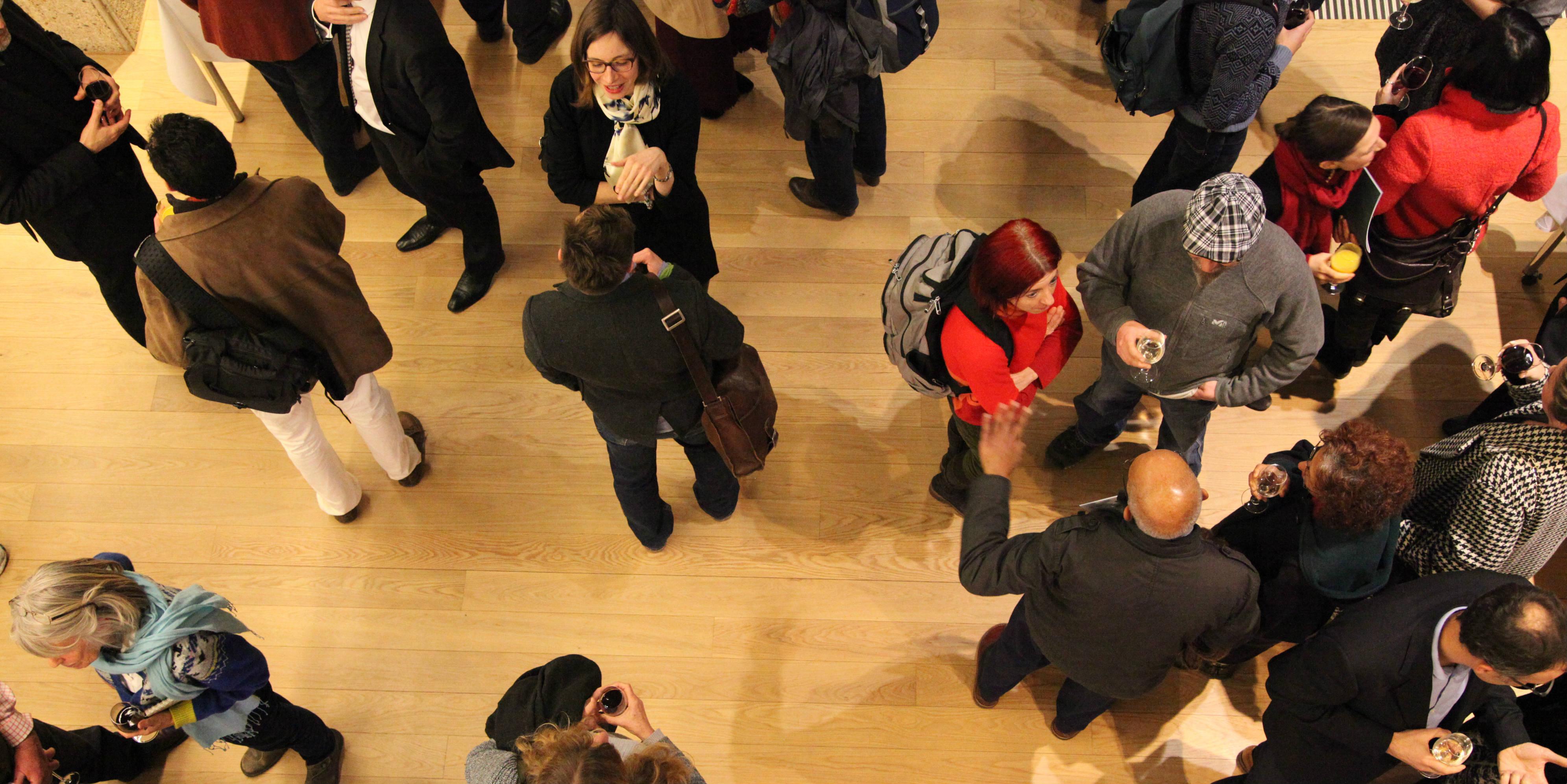
Over 150 people came to listen to a panel of the Forum's experts explore ideas and future research questions stemming from our first topic on the 14th January 2015 at the McGrath Centre in St Catharine's College.
Can we rethink how we design and live in cities? How will cities adapt to the challenges facing them in the future? What new research can we do and what new connections can we make to help us to prepare for these challenges?
Between October 2013 and June 2014, the Cambridge Forum for Sustainability and the Environment brought together a rich mixture of policy- and decision-makers from governments and business, technical experts and researchers to talk about these questions and to make connections between different facets of sustainability and the environment in future cities and the governance needed to support them.
This series of meetings generated some fascinating ideas and these have been distilled into an output. On the 14th January, panel of experts from the Forum will use this as starting point to talk about future research and unanswered questions related to where we live in cities, how we live and how we respond to change.
Paul Linden, the Director of the Forum and G.I. Taylor Professor of Fluid Mechanics, welcomed everyone and Lord Martin Rees, the Chair of the Forum, introduced the three speakers.
Resilience and shifting away from optimising the status quo
Peter Guthrie, Professor of Sustainable Development in the Department of Engineering, spoke first. He explored four aspects of cities in his introduction, including what resilience means in the context of cities; the advantages and disadvantages of planning versus informality; whether we need a paradigm shift away from optimising the status quo; and that the complexity of cities means that climate change needs to be viewed as one of the many challenges they face, not simply the one we have to solve first.
What kind of cities do we want to live in?
Koen Steemers, Professor of Sustainable Design in the Department of Architecture, argued that although the Forum asked many questions over the course of the topic, one which lies are the heart of many of them was: what kind of cities do we want to live in? Design is fundamental to answering this question and not only the design of buildings and infrastructure but also the social and technical aspects of cities.
He highlighted two areas which underpin where more research is needed: understanding the important role that spatial diversity plays in cities, and developing methods focused on urban connectedness and systems thinking as part of a more sophisticated and nuanced approach to designed cities.
Cementing connections between governance and sustainability
Doug Crawford-Brown, the Director of the Cambridge Centre for Climate Change Mitigation Research (4CMR) in the Department of Land Economy, highlighted three areas where further work is needed to gain a richer understanding of connections between governance and sustainability in future cities.
The first relates to planning and the effectiveness of centralised planning versus anarchy – or a lack of planning - in cities. The second stemmed from a lack of evaluation and experimentation in cities and the third calls for a research agenda that understands the agents and networks in cities in order to be able to identify the opinion leaders and the drivers of change.
Public spaces have a crucial role to play
Catharine Ward Thompson is Research Professor of Landscape Architecture at Edinburgh College of Art and the University of Edinburgh and she joined the panel to respond to the ideas presented by the three speakers and to take questions from the audience.
She highlighted the importance of public spaces, parks and squares in both defining what a city is and shaping the lives of the people who live there. She also connected the design of cities and our health and well being and asked: How can we design our cities and our infrastructures so that they elicit healthy behaviour and so that we choose and we delight behaviours that improve and enhance our environment and make it accessible to older people, for people of different cultures and for disabled people?
Questioning the panel
During 25 minutes of lively Q&A, the audience challenged the speakers to talk more about the potential role of big data in making cities more sustainable, how resources flow in and out of cities, and ways in which what is happening under the ground can influence life above it. People were also interested in exploring how cities in different parts of the world could be compared to each other and ways in which lessons learnt from established cities such as Cambridge and London could be applied to brand-new cities.
